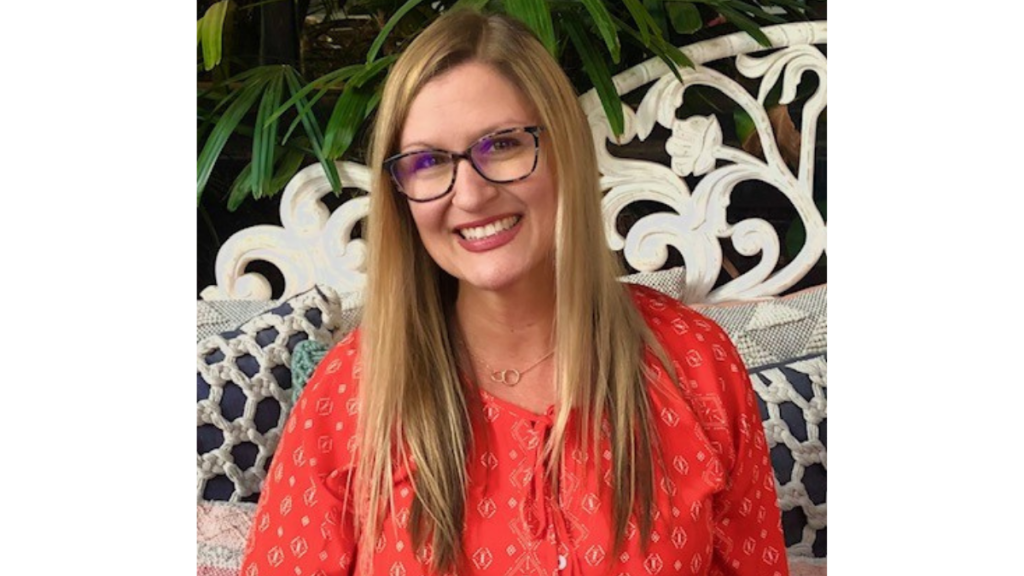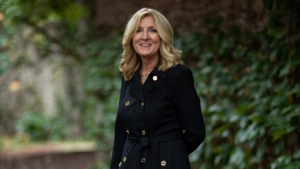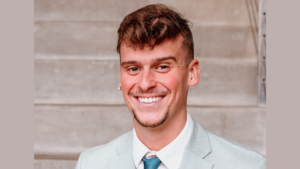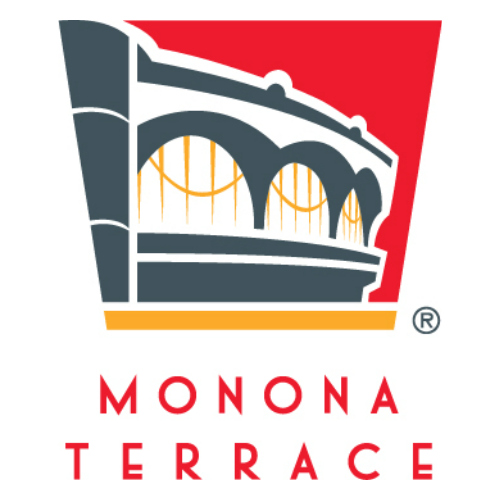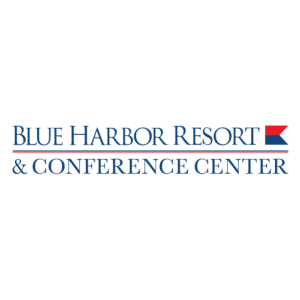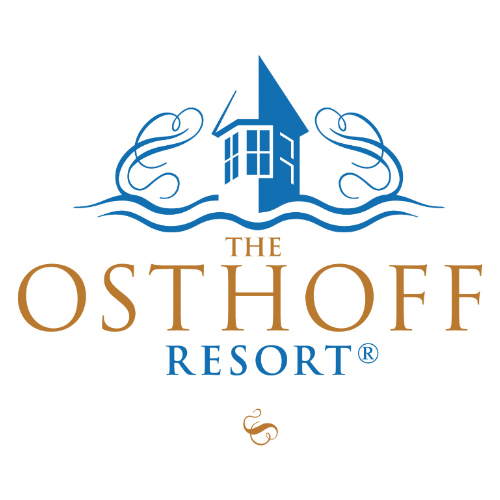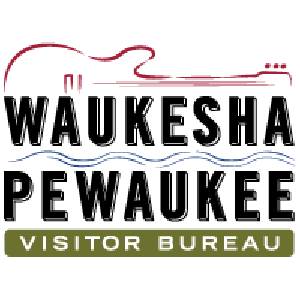Planning: A Bit Art, a Bit Science
06/29/2023
By Carrie Mantey
Shari Weber, CMP, HMCC, owner and executive planner at Lake Country Event Planning, was raised in Washington, D.C., fell in love with event planning in college and has been producing events ever since. Prior to starting Lake Country Event Planning, she worked as an events manager for several high-end venues and brands across the United States, including Washington, D.C. and Los Angeles. In 2014, she moved to her husband’s hometown in Oconomowoc, Wisconsin.
Lake Country Event Planning is a full-service event management company with expertise in event design, planning and execution. Weber has over 20 years of experience producing everything from stylish weddings to executive meetings and awards shows. She is dedicated to creating the most unique and memorable events possible by combining operational knowledge, trusted vendors and gorgeous locations. With creativity, passion and attention to detail, she enjoys helping clients fulfill their vision.
Wisconsin Meetings spoke with Weber recently on a variety of topics below.
WM: What got you involved in the meeting and event planning field?
Shari Weber (SW): My journey happened very organically after college. While waiting to get into veterinary school, I was asked by a family friend to assist with his company’s black-tie charity galas. I had a natural instinct for planning and organizing hundreds of the smallest details. Pair that with the satisfaction of seeing something through from beginning to end was an adrenaline rush for my Type-A personality and I became hooked.
WM: What is your event planning background? How has it translated into your current success?
SW: Since working on charity events, my background has been very eclectic. I knew I wanted to explore the industry as much as I could to hone in on what would work best with my lifestyle, and what would keep me passionate and energized to go to work every morning. So I dabbled in a variety of sectors (sports and entertainment, politics, corporate, technology, healthcare/pharmaceutical, nonprofit and social).
I also made sure to expand my knowledge of the industry by experimenting with different types of agencies over the years: destination management companies (DMCs), hotels, third-party planning companies, clinical research organizations (CROs), medical communication agencies (MedComms) and more. It gave me the confidence to eventually pinpoint what types of meetings and events fuel me.
Eventually, I received my Certified Meeting Professional (CMP) certification and Healthcare Meeting Compliance Certificate (HMCC). Both educated me thoroughly, helped me to further my career and, most importantly, imparted a certain standard of excellence to give wholeheartedly to my clients. I still dip in different sectors, but I currently concentrate on planning pharma, healthcare and biotech clinical and commercial meetings.
WM: What’s on your meetings and events docket in 2023? What’s your day-to-day like?
SW: The pandemic shook our industry, and I think every meeting and event planner went through a myriad of emotions, including myself. I took a holistic look at what I was currently doing, what I missed doing and took the time to ensure I was still on a path of igniting the flame for my industry. I did not want to give up on it and, instead, I decided to go out on my own. It was a scary transition, but with the help of wonderful clients and past colleagues, I pivoted quite quickly and am proud to say I have the opportunity to work on a variety of projects that keep me energized and every day is never the same.
I’m currently working on a project managing multiple series of clinical trial meetings within an array of therapeutic areas. I partner with CROs, MedComms and pharmaceutical clients to bring clinical trial sites together to implement protocols and provide a forum for training. I have the privilege of traveling to different areas of the world to execute the end goal of communicating valuable scientific information. And because I’m passionate about the community I reside in, I’m also a wedding and event planner in my hometown. I love the variety and flexibility both sides of business ownership give me.
WM: What sets you apart from other event planners? In other words, what’s a unique thing you do when planning an event or meeting?
SW: DATA! I collect data on whom my client is, how they communicate, their style, likes, dislikes, and what’s worked or not worked for them in the past. Taking the time to ask questions about their goals and objectives always gives me the upper hand right out the gate. In addition to that, I have a simple rule of timely communication. There are so many moving parts to any meeting or event that clients need to, at least, know you are contemplating a solution to a problem or an answer to a question, even if you don’t have one right away. I like to ease my clients’ stress levels by communicating properly, effectively and quickly. I also not only use the obvious timelines and action plans that every meeting and event planner should have in their repertoire, but I use Microsoft Outlook Rules and Categories religiously for staying on track and following up as well. It only takes one email to fall through the cracks and break a meeting!
WM: How is this year the same or different from other years? List three things you’ve done differently this year from years previous.
SW: Post-pandemic years are probably different for all meeting and event planners. Specifically, for me:
- Most of my meetings have a hybrid component these days. Because people are so used to virtual meetings, it takes a greater deal of effort to become more innovative with how you present your content virtually: How can we make it more visually stimulating? How do we keep attendees engaged? What does the relationship building and follow-up look like post-meeting?
- Another difference is determining how to digitize the meeting without overstimulating attendees or bombarding them with technology. I’m having to become even more technologically savvy these days. I have to understand new trends, new platforms, what works and what doesn’t work, depending on my audience.
- I do a lot of venue sourcing and vendor procurement for my clients. What used to be simple contracting terms has now become a lengthy, high-cost, risk-induced contract negotiation process for my clients. That equates to spending more billable hours than before by having to thoroughly scrub contracts, and being creative with terms and concessions that both my supplier and client will be happy with. Flexibility and patience are key.
WM: How are virtual/hybrid events faring in the near-term and long-term? How are you currently handling hybrid?
SW: Most meeting and event planners will tell you that face to face will never go away. People thrive on social interaction. But the need for virtual is all around us with busier-than-usual schedules. In my world, healthcare personnel (HCPs) need the flexibility of hybrid offerings and we will continue to accommodate them. On the other end of the spectrum, however, are those attendees who work from home, and are eager to get out and explore a change of scenery.
Handling hybrid meetings and events is not an easy task. Educating clients that hybrid meetings are basically two separate events, with two different costs and logistical needs, is a hurdle, so I set the expectations early in the planning phase, even if the clients believe they do not need a virtual component (because, more times than not, that component always comes around at the 11th hour, so this way, I’m prepared for the ask).
WM: Describe one of the meetings or events you’re most proud of.
SW: When my clients have a smile on their faces post-meeting or event, and tell me it was a huge success, I’m proud. But moments that stick out the most for me are the ones that pull on my heart strings: the look in a couple’s eyes during their first dance knowing they only had to concentrate on each other and not the details of the day, the millions of dollars raised during a nonprofit charity event I planned, being on site and getting the call that my client’s drug was just approved by the Food & Drug Administration (FDA), the raising of championship banner for my favorite sports team and, of course, watching Prince dance to his favorite DJ during the many after-hours events I planned for him back in Hollywood.
WM: What’s the biggest challenge you’ve faced over your event planning tenure?
SW: I’ve dealt with my fair share of challenges over the years and, despite my continued optimism, I try my best to be ready for what could go wrong each time I’m planning a meeting or event. But one challenge that will always remain in the forefront was on 9/11, when I had a team of event planners managing a 200-person event in New York City near the World Trade Center. If you were a meeting or event planner executing an event on that day, you experienced something no one ever could have planned for.
Back then, crisis plans weren’t as prevalent as they are now, but we, as event planners, have a natural-born instinct for averting crisis. We had to think on our feet about the safety of our attendees and our staff on site, all while dealing with the emotions and fear that our loved ones and our country were in danger. During the little time we had communication, we had teams, such as myself, on the ground in Washington, D.C., putting together a chain of command in New York City, a plan to collect our people quickly, calmly and safely. We were digging through city street plans for escape routes, dividing staff and giving each one specific tasks for gathering attendees as some were spread across two hotels. This was all while my team in D.C. (2 blocks from the White House) had to build our own evacuation plan for getting out of the city.
We all came together as a team that day to take care of those we were responsible for, and it ended up opening further discussions surrounding crisis management plans and preparation as I believe it did for most planners after 9/11.
WM: What are you striving for in today’s event landscape? In contrast, what are you struggling with?
SW: New event formats (hello, hybrid!) are making it mandatory for meeting and event planners to fill in the gaps with new skills and capabilities. I strive to keep up with what is happening and changing in our industry so I can quickly adapt, share such knowledge with my clients and feel confident I’m on the forefront of a trend rather than behind the times. But the environment is ever evolving and what I strive for also becomes my challenge sometimes — to actually keep up! What was once old is new. What was new is now old. We get technology fatigued. We see the rising costs of goods, but budgets and HCP meal caps remain the same. But I give myself a break and recall why I do this — to bring people together, to make every event personal and impactful, and to be creative where I can.
WM: How do you stay on top of event and meeting trends? What’s on the horizon for the events industry in Wisconsin?
SW: Read, listen and watch! There’s so much information out there ,and I’m extremely fortunate to have a strong network of meeting and event planning colleagues (past and present) and clients that band together on knowledge sharing. Here’s a simple example: My former employer, Meetings & Incentives Worldwide Inc. (a women-owned, Wisconsin-based event management company), is excellent at this exact task. The company regularly keeps up with trends and shares them across all of its social media platforms. Online subscriptions in our industry, such as Wisconsin Meetings, are another of my favorite resources for tips, trends, venues and staying up to date with what tourism looks likes in our state. I also attend online workshops or face-to-face conferences. As a principal owner, I take pride in ensuring I know as much as possible to remain relevant.

